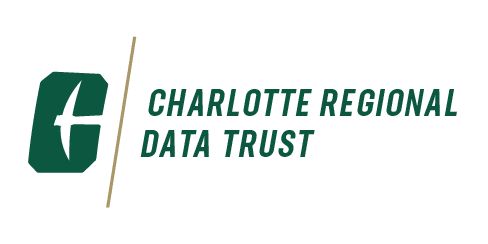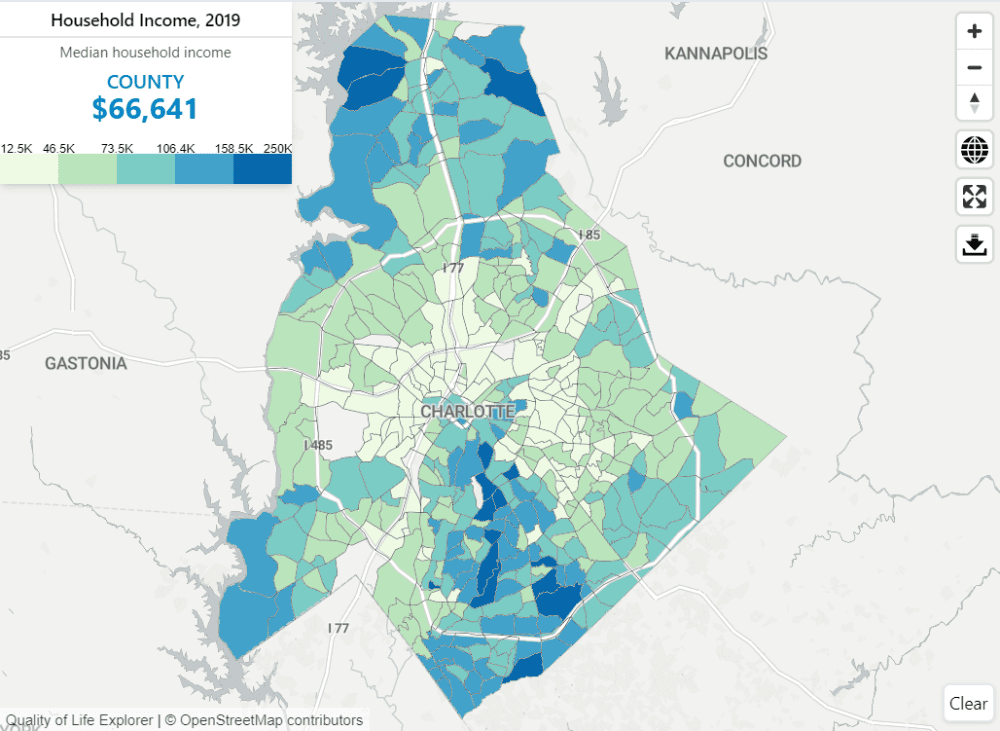Data
The UNC Charlotte Urban Institute uses qualitative and quantitative data to better understand our region, examine the challenges we face and explore solutions.

CHARLOTTE REGIONAL DATA TRUST
The Charlotte Regional Data Trust was founded by the UNC Charlotte Foundation in 2004 and merged with the UNC Charlotte Urban Institute in 2012. Its mission is to provide social resources that advance university research and increase the community’s capacity for data-based planning and evaluation.

QUALITY OF LIFE EXPLORER
The Quality of Life Explorer is an interactive mapping tool to explore the social, housing, economic, environmental, and safety conditions in Charlotte and Mecklenburg County. Local residents, businesses, service providers, government agencies, realtors, universities and more can use the Explorer to learn more about the county and its neighborhoods, develop programs and services, and plan for the future.

MECKLENBURG HOUSING DATA
Developed in partnership with Mecklenburg County, the Housing & Homelessness Dashboard and annual housing reports enable the community to be acquire and use data. The portal serves as a one-stop-resource for housing and homelessness information, featuring data and research, information on local initiatives, and a weekly blog offering analysis on local data.

REGIONAL DATA
The UNC Charlotte Urban Institute’s data portal includes facts about the Charlotte region from among 11 topic areas. You can compare your county to the metro region and the state, and explore in-depth data from our partner organizations.